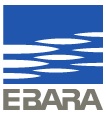New Training Course: Converting Refrigeration Systems with R404A and R507A for Use with Low-GWP Refrigerant
Bitzer has been promoting the development of compressors for refrigerants with low global warming potential (GWP). The specialist in refrigeration compressors has now developed a new training concept: on 28 November, at the Rottenburg training centre, company experts explained for the first time how to convert systems for use with low-GWP refrigerants such as R448A and R449A.

Following the theoretical part, participants will work in small groups on existing systems and learn how to convert reciprocating and screw compressors for use with eco-friendly refrigerants (Image: Bitzer)
During the one-day training course, Bitzer experts explained key details of the F-gas Regulation, compare refrigerants based on their specific characteristics, and show how planners and technicians can choose these for a future-proof solution. Following the theoretical part, participants will work in small groups on existing systems and learn how to convert reciprocating and screw compressors for use with eco-friendly refrigerants.
‘Systems planned today also have to meet the stringent regulations of tomorrow, whilst the operation and service of existing systems have to be ensured. The prices for high-GWP refrigerants are skyrocketing due to the quota regulation, demonstrating just how urgent the issue already is today,’ says Volker Stamer, Director of the Schaufler Academy. ‘Due to the higher costs, there’s increased economic pressure on system operators, planners and technicians to use low-GWP refrigerants. But converting and operating systems requires special knowledge, as low-GWP refrigerants often have unique thermodynamic characteristics and, in some cases, demand more stringent safety precautions. Natural refrigerants thus reduce, for example, direct CO2 equivalents, though some of them are toxic, as in the case of ammonia, or flammable, as in the case of propane,’ emphasises Stamer. ‘At the Schaufler Academy we show technicians and planners how to convert systems for use with low-GWP refrigerants and thus ensure that in the future refrigeration systems are not only eco-friendly, but also reliable, efficient and safe.’
Drastic shortage of F-gases from 2018
The EU’s F-gas Regulation will drastically reduce the amount of usable F-gases beginning in 2018: calculated using CO2 equivalents (based on GWP and amount of refrigerant), the quota is reduced to just 63 per cent of average consumption for the years 2009 to 2012. But taking into account those devices imported from outside the EU and filled with refrigerant, this means an actual reduction of around 44 per cent. The use of F-gases has to be lowered gradually by 79 per cent by 2030. ‘Such a drastic reduction is only possible with low-GWP refrigerants. The Schaufler Academy is one of the few training centres where those who need to be able to overcome these challenges on a daily basis can be trained,’ says Stamer. ‘At Bitzer, we not only support our partners with modern compressors, but also with practical training courses.’
Source: BITZER Kühlmaschinenbau GmbH






